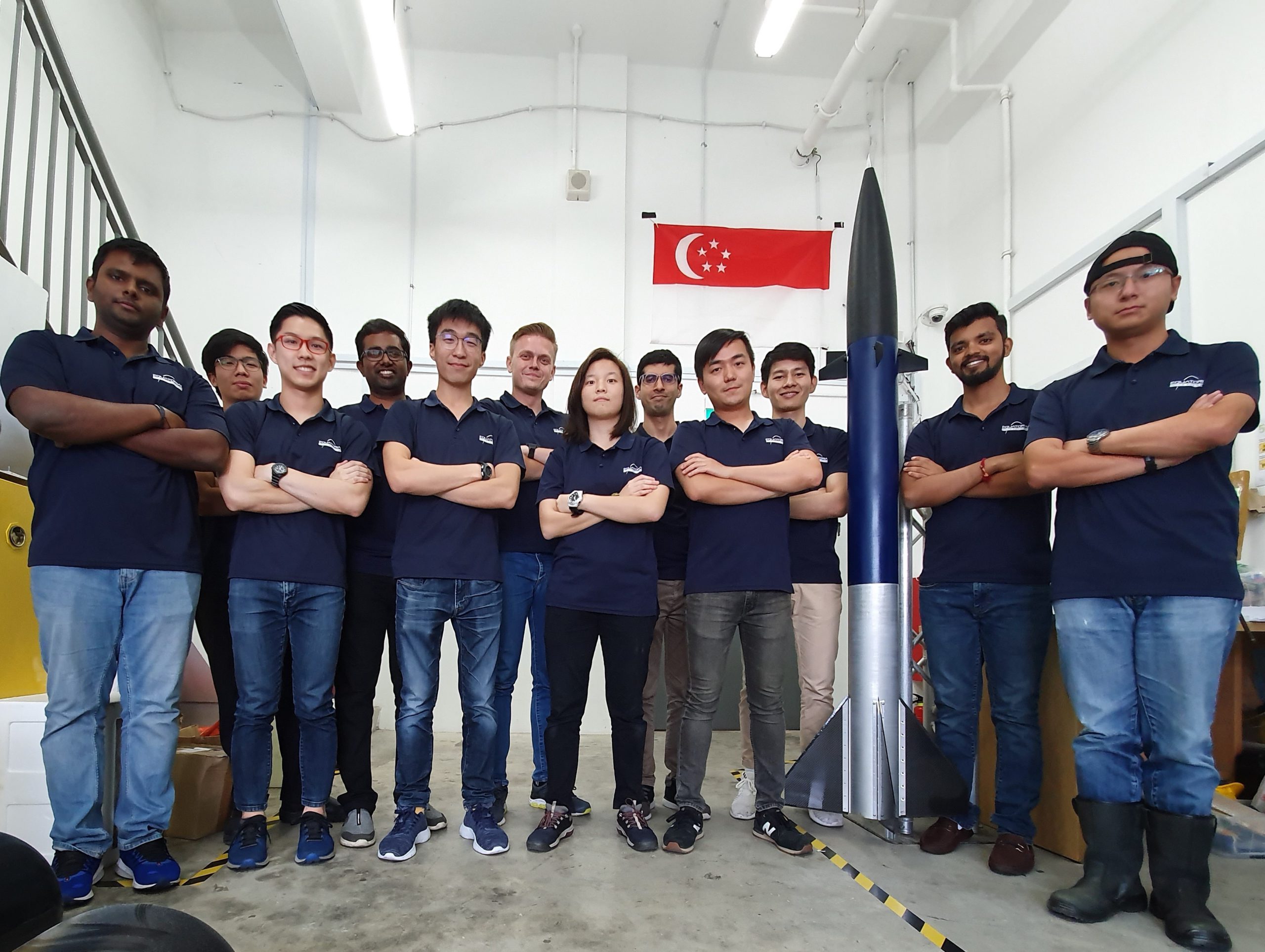Simon Gwozdz first stepped into space technology as a volunteer. In 2016, he helped running a live event organized by the non-governmental Singapore Space and Technology Limited (SSTL), where his knowledge of audio-visual systems came in useful. The rocket enthusiast would listen attentively to the professional satellite developers.
Today, he’s the one sharing his story. Gwozdz is the founder and CEO of space-tech startup and rocket developer Equatorial Space Systems, which aims to launch Southeast Asia’s first commercial rocket in 2021. It will be a suborbital rocket, which will be launched upward to its peak altitude and then descend to earth.
Equatorial Space Systems isn’t the only company shooting for the stars. Interest in space exploration worldwide has grown in recent years. According to Morgan Stanley, revenue in the global space industry could reach more than USD 1 trillion by 2040—nearly triple the current figure of USD 350 billion. That’s because of more private funding, growing public sector interest, and technological advancements, they say.
Gwozdz and his team are taking advantage of it. They are using a safer and simpler hybrid propulsion technology for their suborbital rocket. “Hybrids are using liquid oxidizer and solid fuel, propulsion systems that are not explosive, and also very, very straightforward,” he told KrASIAin a recent interview.
That makes the rocket safer to operate and control—and its design is also simpler. Most other rocket developers, like the California-headquartered SpaceX, use propulsion systems that are solely liquid- or solid-based. But solid propulsion systems are “essentially just a giant firework,” according to Gwozdz. “It’s filled with high-powered explosives, and you can’t really control much of that in flight.”
Launching this suborbital rocket next year will be the first step towards Equatorial Space Systems’ next goal. It will be a test run for on-board components and systems, which need to be qualified in flight and space first, said Gwozdz. “Once we commercialize the suborbital rocket, we’ll be developing a much larger one, which actually carries satellites into orbit.”
But the business model isn’t solely rocket development. “We are actually going to become a transportation company,” said Gwozdz. “The idea is to really offer a transportation service to whoever needs a satellite in a specific orbit.”
That’s because rockets function like vehicles carrying satellites. These satellites can be used for connectivity, or to collect data and monitor activity on earth. “It’s becoming cheaper to launch small satellites into space, and that means satellites could soon replace technologies like high-speed network cables,” said chief technology officer Jamie Anderson. “4G-type technologies could be replaced by satellite networks, and you would get coverage into these remote areas where you don’t traditionally have connectivity.”
Satellites are already used to power TV networks, broadband internet, and GPS navigation systems. The agricultural industry in Southeast Asia could also profit from them, connecting farms and water reservoirs, and track supply chains. The region houses the world’s leading rice exporter Thailand, as well as Indonesia, which accounts for more than half of worldwide palm oil exports. “Locations which are not very far from the equator could benefit from the affordability that equatorial satellites can actually provide to them,” Gwozdz said.
Equatorial Space Systems can bring its rockets to market directly, together with satellite developers, or through rocket-launch service brokers. It already has contacts with Singapore-based internet company Transcelestial, which aims to build a space-laser network through satellites.
“The total addressable market for suborbital launch from our research can be as high as USD 150 million a year. So having a flight-qualified rocket will essentially give us a very straightforward entry into this business,” Gwozdz said.
Singapore’s space industry
Singapore’s space ecosystem comprises 56 companies, according to the SSTL’s space directory. However, the country does not have a governmental space agency, unlike its Southeast Asian neighbors Malaysia, Indonesia, and Vietnam. All of Equatorial Space Systems’ operations are funded through private investments and fundraising.
“Singapore should invest in a space agency and in a space program, and rope in the private sector as contractors, which appears to be the most successful model around the world right now,” said Gwozdz. A national space agency would draft space policy and legislation, and support research and development efforts. It could also act as a coordinating agent with international space agencies like NASA, he added. Indonesia’s space agency will begin the country’s first-ever search for extraterrestrial life next year.
Future plans
Singapore’s location near the equator is also ideal to launch rockets into several orbits, to serve different market niches. With the country’s strong foundation in aerospace and maritime engineering, Singapore could become a “dominant force” in space technology, Gwozdz believes.
The company plans to diversify Equatorial Space Systems’ rocket launch services and develop deep space propulsion applications. “I don’t see a reason why we shouldn’t be a part of this new space race,” Gwozdz said. “I think it’s in fact, our duty and obligation to be a part of it. And we have to use our talents and our grit to make it happen.”
This article is part of KrASIA’s “Startup Stories” series, where the writers of KrASIA speak with founders of tech companies in South and Southeast Asia.
